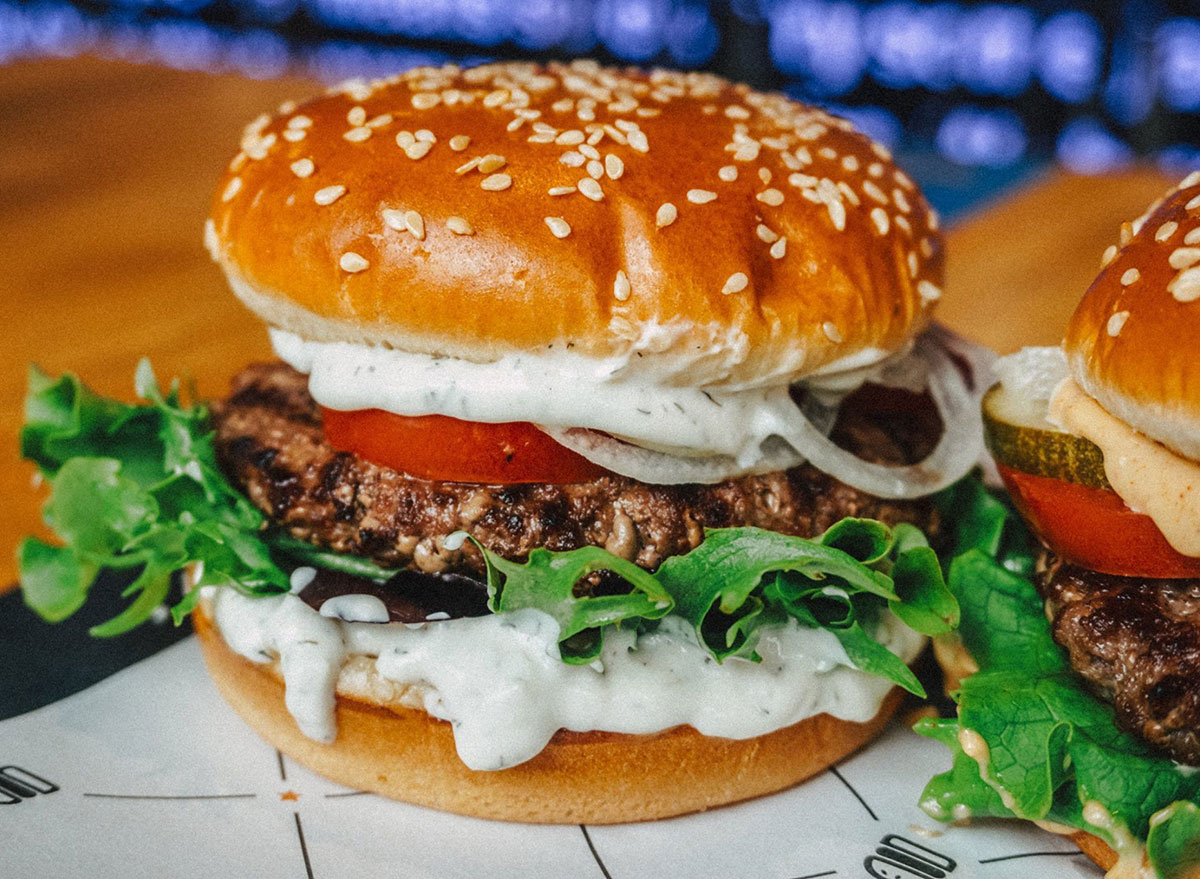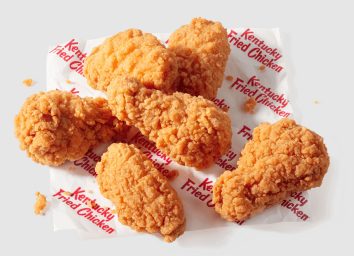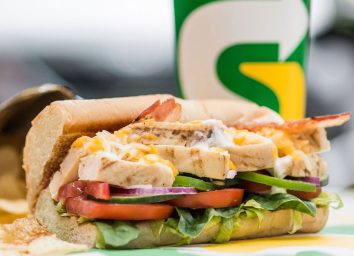Locations of This Collapsing Burger Chain Are Changing Their Names and Going Rogue

When a fast-food franchise fails, it rarely happens because the business is set up more like a pyramid scheme than an actual scaleable brand. But according to restaurant industry insiders as well as its franchisees, that was the case with Burgerim. Now, you may end up eating at a local burger joint without even knowing it is actually a rebranded Burgerim location, as operators are taking their restaurants out of the chain’s system and trying their luck as independents or as parts of other burger franchises.
In 2018, Burgerim was considered to be the brand to watch thanks to its astronomical expansion to 200 restaurants within three years. It was able to achieve this thanks to a too good to be true proposition to new franchisees: to open a Burgerim location they wouldn’t need any restaurant industry experience, only a payment of $50,000. The best part? Becoming an operator would be risk-free as the company promised a money-back guarantee should they be unable to open the location within six months.
Sure enough, the chain began falling apart soon after. Franchisees reported having a difficult time opening their restaurants due to construction expenses and leases that ran much higher than Burgerim’s estimations. The chain’s extensive, complicated menu also made operations too costly. Dozens closed their doors after only several months in business or never fully opened before going bankrupt. It’s reported that Burgerim provided little support (even failing to collect monthly royalty payments from their operators, leading to employees going months without salaries).
By 2019, Burgerim’s founder Oren Loni had left the country and the company in shambles. The chain was under new leadership and facing dozens of franchisee lawsuits to recoup those $50,000 payments to the chain. As a result, many operators who managed to get their Burgerim location off the ground ended up having to rebrand to stay afloat.
According to Restaurant Business, you’ll find many former Burgerim locations now operating under a different name as franchisees jumped ship and attempted to turn their luck around. They made much-needed changes to the menu and removed items that were hampering their profits. And several are finding success with this strategy.
Abdul Popal, a franchisee who spoke to Restaurant Business, estimates he invested $1.2 million into the buildout of three Burgerim locations in the Bay Area. He ended up rebranding two of them into his own concept called iniBurger, which serves a similar but more streamlined and manageable menu of burgers featuring different protein patties. IniBurger also added some of their own, newly developed items like Nashville Hot Chicken and a Mushroom Swiss Burgers. “The new items we put on the menu have been a runaway success,” Popal told the publication.
Others have followed suit. A Burgerim located in a mall in Torrance, Calif. is now called Burgers n Bites; in Reno, Nev., a former Burgerim now operates as Sizl Burger and serves items from the menu of a virtual burger brand called MrBeast Burger.
Some Burgerim locations have joined another, more established burger brand, the Los Angeles-based Fatburger. The chain, operated by Fat Brands, pursued failing Burgerim locations and onboarded several franchisees.
“I decided to do it,” Joey McCullough, an operator who turned his Norfolk, Va. Burgerim to a Fatburger, told Restaurant Business. “It made sense to do that rather than to carry on with Burgerim. It got to the point where I closed down at the end of December. It was cheaper for me to stay closed rather than to operate.”
For more, check out:
- America’s Largest Fast-Food Chain Is on a Downward Spiral, Reports Say
- This Pizza Chain’s Decline Is Due to “Bad” Food, Customers Say
- 5 Major Fast-Food Chains Falling Out of Favor With Customers
And don’t forget to sign up for our newsletter to get the latest restaurant news delivered straight to your inbox.








